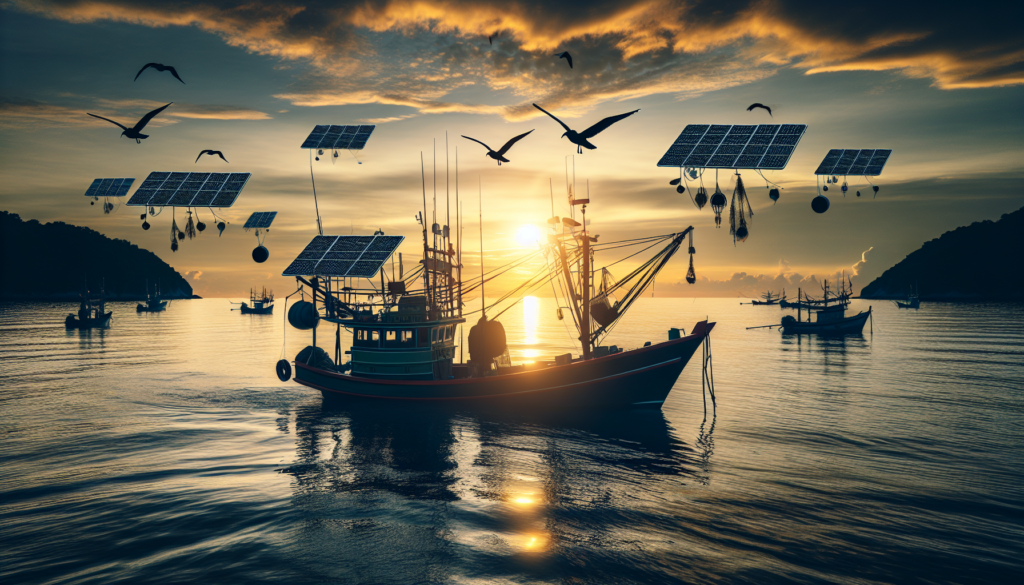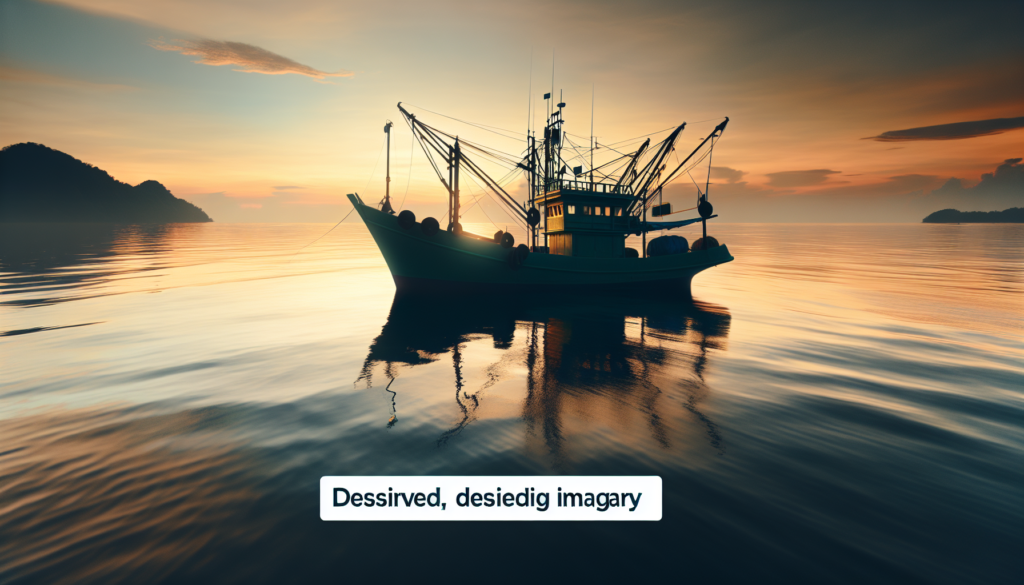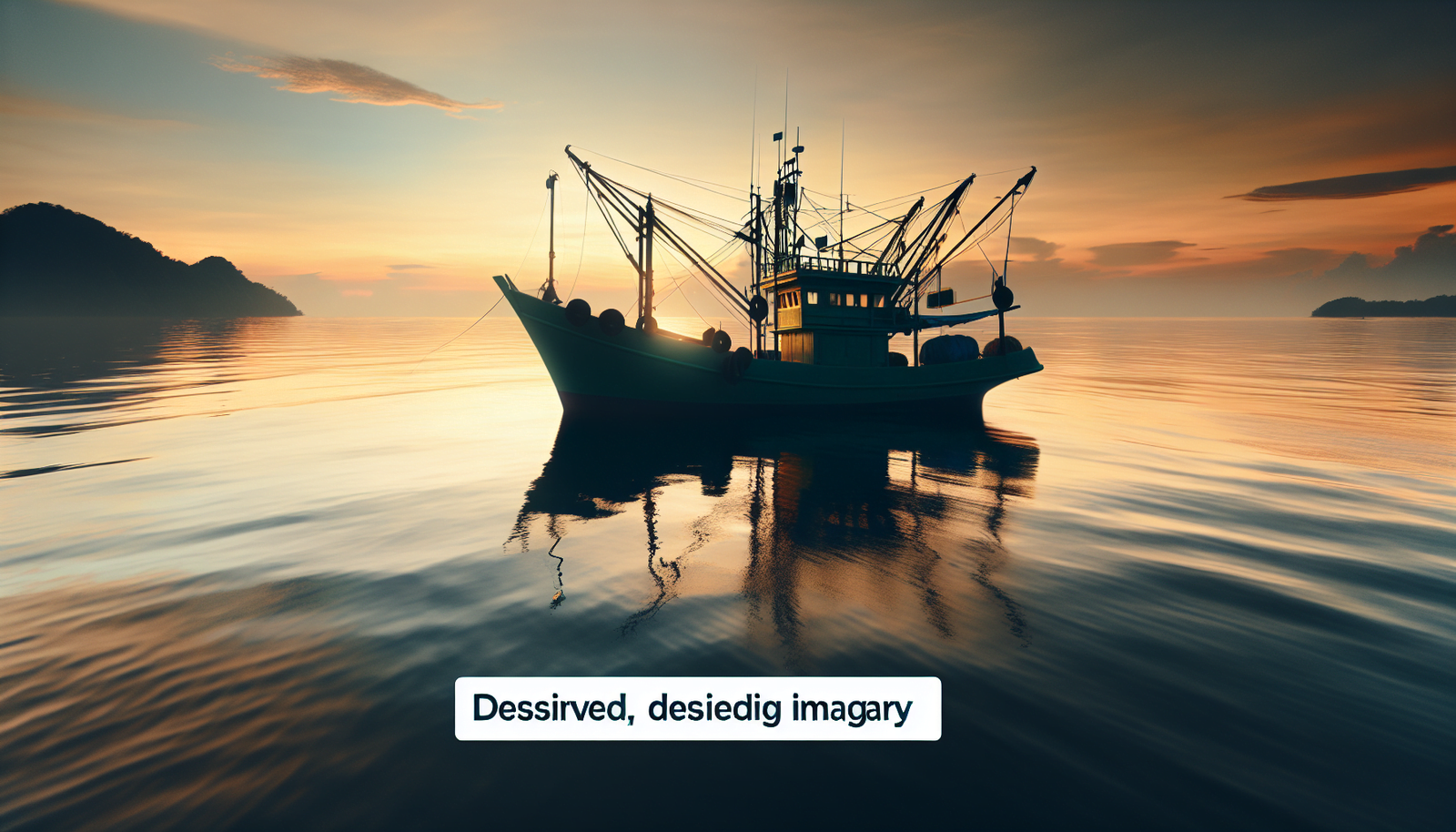Imagine setting sail on a fishing adventure, feeling the rush of the wind on your face, the gentle rocking of the boat and a thrill at the prospect of that elusive catch. But did you know there’s a way to blend this passion for fishing with a commitment to planet Earth? “eco-friendly fishing: Techniques for Sustainable Boating” is all about doing just that – transforming your love for angling into a force for ecological balance. As you navigate through this guide, you’ll discover how your boating practices can contribute to sustainability, ensuring that the marine environment remains teeming with life for future fishing adventures, all while you continue to reel in those impressive catches.

Understanding the Need for Eco-Friendly Fishing
Fishing has always been more than just a pursuit towards a livelihood or a hobby for many people around the world. However, the escalating demand for seafood, coupled with technologically advanced fishing practices, has left devastating effects on marine ecosystems.
The effect of traditional fishing on marine ecosystems
Traditional fishing methods, although often seen as harmless due to their long history, can actually be quite disruptive and destructive to marine ecosystems. Methods such as trawling can cause long-lasting damage to the ocean floor, wiping out entire habitats in the process. Many traditional fishing practices also lead to overfishing, which severely disrupts the balance of marine life.
Importance of sustainable boating for ocean conservation
Given the current state of the fragile marine ecosystem, there has never been a more crucial time for sustainable boating. Boating that is mindful of environmental impacts and is focused on minimizing harm can go a long way in ocean conservation. This includes practices like using low-impact fishing gear, following responsible waste management protocols, and staying conscious of marine life in the vicinity while boating.
Outline of potential impact of eco-friendly fishing
The potential impact of eco-friendly fishing is vast. By using sustainable fishing gear and methods, the harm caused to marine life can be significantly reduced. Efficient waste management practices can alleviate the enormous strain put on marine habitats by pollution. Through committed effort, one can protect marine biodiversity and contribute to marine ecosystem resilience against increasing climate disturbances.
Principles of Sustainable Boating
Adopting sustainable boating principles is the cornerstone of eco-friendly fishing. Whether you’re a commercial fisherman or a recreational angler, these principles can guide you to minimize your environmental impact.
Minimization of resources use
Economizing resources can be the first step towards sustainable boating. Be it the fishing gear, fuel for the boat or the fish that you catch; using all resources judiciously is essential. This includes using fuel-efficient boating techniques, selecting gear that minimizes waste, and only catching the amount of fish that meets your needs.
Reduction of damage to marine life
All boating activities should ensure minimum damage to aquatic life. The primary principle of sustainable fishing states that no harm should be caused to the marine environment. This follows from selecting fishing sites responsibly, careful navigation to avoid sensitive marine habitats to using fishing gear that doesn’t harm non-target species.
Support for the local fishing community
Supporting your local fishing communities can help promote better practices across the industry. By choosing to buy from local fishers who adhere to sustainable practices, you’re not just supporting the local economy, you’re also promoting healthier fishing practices.
Emphasis on respect for the natural environment
Respect towards the marine environment should be an intrinsic part of boating. Appreciating the ocean’s beauty and its value for sustenance is the cornerstone for responsible boating. This respect translates into actions that minimize harm and sustain the ecosystem.
Eco-Friendly Fishing Gear
Choosing the right fishing gear is critical to sustainable boating. Simple steps could go a long way to reduce your impact on marine biodiversity and ecosystems.
Selection of sustainable fishing gear
Fishing gear designed with ecological considerations can reduce the disturbance caused to marine life. These gears are selective, meaning they target specific species, minimizing the bycatch of non-target species and young fishes.
Proper disposal and recycling of fishing gear
Fishing gear discarded casually into the ocean can lead to ‘ghost fishing,’ where lost or abandoned nets continue to catch fish and other marine life. Proper disposal and recycling of fishing gear prevent such circumstances, saving marine life.
Ensuring minimal disturbance to aquatic habitats with fishing gear
Regardless of the gear you use, it is essential to ensure that it causes minimal disturbance to the marine habitat. Avoid dragging nets along the ocean floor or using harmful components that could adversely affect aquatic life.

Safe and Respectful Interaction with Marine Life
Your actions during fishing activities can have a significant impact on fish and other marine animals. Adopting safe and respectful practices ensures their well-being.
Ways to avoid disturbing marine life during fishing
Adjust your fishing practices to avoid unnecessary disturbance to marine life. This could be timing your fishing activities to avoid significant periods in the life of marine animals like spawning or migration.
Techniques for humanely releasing unwanted catch
In case you catch a species that you do not intend to keep, knowing how to return it humanely to water will increase its chances of survival. Methods such as using wet hands or gloves minimize damage to the fish’s scales and mucus layer, protecting it from infection once it’s back in the water.
Promoting the well-being of marine life during fishing activities
Your conduct during fishing activities can foster marine life well-being. Reduce stress to fish by reeling them in as quickly as possible, avoid overcrowding in the live-well, and release them carefully back to the ocean.
Clean Boating Practices
Your vessel’s cleanliness goes hand in hand with eco-friendliness. Maintaining a clean boat is not only about the aesthetic appeal but also about mitigating harmful effects on the environment.
Implementing non-toxic cleaning methods
Non-toxic cleaning products are gentle on the environment. Their use eliminates the chance of harmful chemicals entering the water that could be damaging to aquatic life.
Effective waste management onboard
Separating waste into recyclables, compostable, and trash while onboard can minimize pollution. Dispose of your waste properly once you’re back onshore.
Reducing fuel consumption with efficient boating skills
Efficient boating techniques, like maintaining optimal speed and ensuring the boat is not overloaded, can significantly reduce fuel consumption. Not only is this good for the environment, it costs you less as well.
Reducing the Carbon Footprint of Your Fishing Boat
Your boat’s carbon footprint considers the amount of greenhouse gases emitted through its operational life. Minimizing these emissions is key to addressing the challenge of climate change.
Understanding the concept of carbon footprint in boating
Fuel choice, engine operation, and efficiency, as well as maintenance practices, determine your boat’s carbon footprint. Understanding this concept is the first step towards its reduction.
Methods to achieve fuel efficiency in boating
Boat maintenance, regular tune-ups, the use of renewable biofuels, and implementation of efficient boating techniques can all enhance your boat’s fuel efficiency.
Exploring renewable energy sources for boating
Renewable energy sources such as solar and wind power can be harnessed to operate boats. The use of these alternatives can help decarbonize boating and reduce your ecological footprint.
Sustainable Fishing Policies and Regulations
Abiding by sustainable fishing policies and regulations is as crucial as implementing sustainable fishing practices.
Adherence to local and international fishing laws
Staying informed on and following local and international fishing laws is paramount for sustainable fishing. These laws may address areas of protection, seasonality, catch sizes, or fishing gear.
Fishing quota systems and their impact on sustainability
Understanding fishing quotas can help prevent overfishing and help maintain a balanced ecosystem. Regularly updating yourself on these quotas promotes responsible and sustainable fishing.
Understanding marine protected areas and their significance
Marine protected areas (MPAs) offer refuge for marine life from human activities. Understanding the boundaries of MPAs and the reasons behind them can foster more conscious boating and fishing practices.
Educating Others on Sustainable Fishing and Boating
Sustainable fishing and boating are collective efforts. Spreading awareness and enlightening others about these practices is essential for their success.
The importance of community education in promoting sustainable practices
Educating your community about sustainable practices arouses a collective responsibility towards the ocean. Community classes, seminars, or local fishing clubs are all excellent avenues for this.
Effective methods for spreading awareness
Online platforms, community groups, workshops, and seminars are effective methods for spreading awareness. In situations where appropriate, modeling sustainable fishing practices can also be a powerful tool in promoting these methods.
Empowering next generation of anglers with sustainability knowledge
Institutionalizing the principles of sustainable fishing in youth is an investment in the future of our oceans. Equip them with the knowledge and resources to be responsible anglers and boaters.
Future of Eco-Friendly Fishing and Boating
Sustainability will shape the future of fishing and boating. Embracing technological innovations, adapting to consumer demands, and recognizing new opportunities are at the forefront of this change.
Technological innovations supporting sustainable fishing
Technological advancements have led to the development of eco-friendly fishing gear, fuel-efficient engines, and renewable energy systems for boating. Embrace these innovations to adapt sustainably to the future of fishing.
Trends in consumer demand for sustainably caught seafood
Consumer trends are changing, and there is a growing demand for sustainably caught seafood. This paints a positive picture for the future of eco-friendly fishing and boating.
Opportunities and challenges for the growth of sustainable boating
Opportunities like technological advancements, growing consumer awareness, and the rising demand for sustainably caught seafood make now a great time for sustainable boating. However, challenges such as the initial cost and acceptance in the fishing community need to be addressed.
Case Studies on Successful Eco-Friendly Fishing Practices
Looking at case studies can make the idea of sustainable fishing more achievable and encouraging.
A look at successful eco-friendly fishing projects
There are many successful eco-friendly fishing projects worldwide. Whether it’s the use of scientific data in quota management in Iceland, or community-based conservations in Samoa, these stories inspire and show that sustainable fishing practices can be implemented practically.
Lessons learned from these case studies
These case studies offer valuable lessons. They demonstrate that commitment to sustainability, community involvement, scientific data use, and policymaker engagement can make eco-friendly fishing projects successful.
How these case studies can shape the future of sustainable boating
The success stories of sustainable fishing can shape the future by presenting a model to emulate. They showcase a tangible possibility of how sustainable boating can be a win-win for everyone – the anglers, the community, the economy, and most importantly, the ocean.


[…] pastime more earth-friendly. The following article aims to give you handy tips and tweaks for more sustainable boating. Check out “Top Ways To Reduce Your Environmental Impact While Boating” to be a part of the […]